
Alexandra Savior: Loneliness as a Musical Impulse17.03.2021
She surprised the music world by signing a contract with Columbia Records and collaborating with Alex Turner (Arctic Monkeys). Savior, Turner and the producer, James Ford, worked together on her debut album, Belladonna of Sadness, in 2015. Today 25-year-old Savior finds her own style and works on the third album inspired by women folk and intimate thoughts. We talk about her everlasting feeling of loneliness, and about the path she had to take to be at the top of alternative vocalists, praised by the international music press.
Your second LP, The Archer, was released just before the outburst of the global pandemic. Due to COVID, it was promoted not through live gigs, but solely via streaming platforms, not to mention that you also had to cope with losing your manager and record label a bit earlier. How do you perceive all these events from today’s perspective?
Alexandra Savior: It’s been a really long time since it came out, at least for me. This whole year has been so crazy that it feels like a decade now. When it comes to the concerts, I get insecure about my live shows so it’s probably better for me if people don’t see it (laughter). The recording process was really different from my second record because I had written the whole album before going in with the producer. I had recorded a lot of demos with my band, played some of the songs live in various setups and that’s why I knew how I wanted my songs to sound. The process of not having a label ended up to be a good experience for me: there wasn’t any pressure, I didn’t have to take into account anybody’s opinion and I had a lot of precious time to finish it. I entered the music industry when I was 16—till The Archer, I didn’t have a situation when someone was not telling me what to do!
NME said that The Archer is your “vision of 1960’s B-movie-inspired love stories”. The whole album combines your biographical stories—like Crying all the time which tells the story of your own breakup—with cinematic connotations. It feels like it’s a soundtrack album that could be used in a movie. How much of you is in your second record?
There were few songs like But You that I knew I wanted to sound very similar to the stuff from the 1960s and 1970s. And now, when you mentioned the soundtrack comparison, I am thinking in which film I would put songs from my album… I believe that everybody would love to be in David Lynch’s movie. I watched Blue Velvet a couple of days ago and I’ll go with this title. It’s not gonna make much sense as The Archer is something unalike to the essence of this film, but I would like it to happen one day. But talking about my second album is like digging in the past. To be honest, I am working on a record now, we have already started recording it.
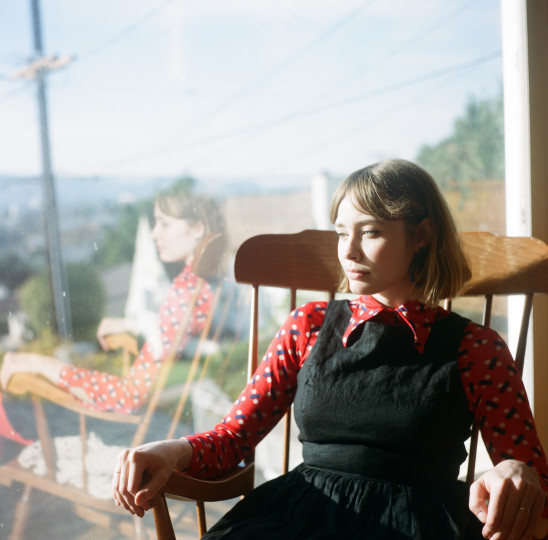
Tell me a bit more about it!
I have been writing it for a long time, but I still haven’t shaped the final form of it in my head. And, what is more, I haven’t got any label either (laughter). It’s a different thing from my previous album—less cinematic and much slower. It’s been such a year of being stagnant and reclusive that the energy is going to be more mellow. To be fair, I have no idea when it will be coming out. Without a contract with a label, I don’t have much money. Nowadays, it is really hard for an artist to sign a deal with a record company. Hopefully, my record is going to come out by the end of this year (laughter).
In terms of my inspirations, I’m really fascinated with female folk artists from the 40s-60s who wrote fascinating music but never became famous—as we all know, it was really difficult for women back then. Karen Dalton, Connie Converse—these folk figures inspire me! They had a story of starting young, aspiring for a bigger career and failing. Later, they all have waited for the moment when someone discovers them. It’s a pity it took people more or less 50 years. The same case is with Alice Neel, my favourite painter who became famous when she was 70!
You’ve also started young—skipping university meant following a new path, the one which you wouldn’t normally have. You could lead a “normal life” like your peers. The music industry changed your route, it affected your adolescence.
It was hard, the biggest difference between me and my friends is that I was alone. I had to discover a lot of my identity and interests myself, I wasn’t learning from professors, I had to find everything on my own. Now my friends have been graduating from their schools and they are starting from a place in which I was 8 years ago. Anyway, I do wish that I had a chance to go to school and lead this “normal life” when I was young. I wish I would have learned more outside of myself, but signing the contract with Columbia Records changed everything in 180 degrees. Maybe I know something about life, but I don’t know anything about academics. I don’t think that teenagers should be signing contracts when they’re 16. People should stop doing that!
It’s been almost ten years since I began making music and there is some sort of loneliness in me and my songs. The fact that I cannot financially support myself seems like a failure, but it’s also the influence of expectations, both mine and the ones which came from the outside world. It makes me feel like I’m in downtime, that I am failing because in the music industry you live in constant highs and lows. One month your new record gets its premiere, you have interviews, people are interested. Next month no one gives a shit and you have to move on. Then you work three years on the new album and you have this feeling of being unsure if the public is going to like your new record. Everything can collapse in a second. In the end, you’re left with some sort of crash.
In your previous songs, some sort of sadness connected with getting joy from it seems to prevail—it’s like musical masochism. In Soft Currents, you sing: My fate is at the hands of my mistakes/and that’s alright. Did you change your formula because of the pandemic?
It’s interesting because the last things I would like to write about are coronavirus and pandemic. I’ve been writing a lot about insecurity, about having to live in a past as the present is so doubtful right now. I was letting go of my past and also focusing on innocence and being overly self-involved. And I also mention the way that Instagram makes me feel I guess! (laughter). That’s what my experience is, nothing more, nothing less, however, I don’t wanna be that person who writes about being locked in the house; everybody does it. I’m trying to approach it from the perspective of my reflections of my life and myself. During the pandemic, I recognized a lot of behaviours that were negative and self-destructive, so I assume this fact also might be seen in my songwriting. In terms of my third album, it’s gonna have a different kind of sadness. When I was writing The Archer, I had a perspective of someone who felt she was a victim. Now I feel like I have accepted the choices I have made, I understand my responsibility. I’m not weak anymore.
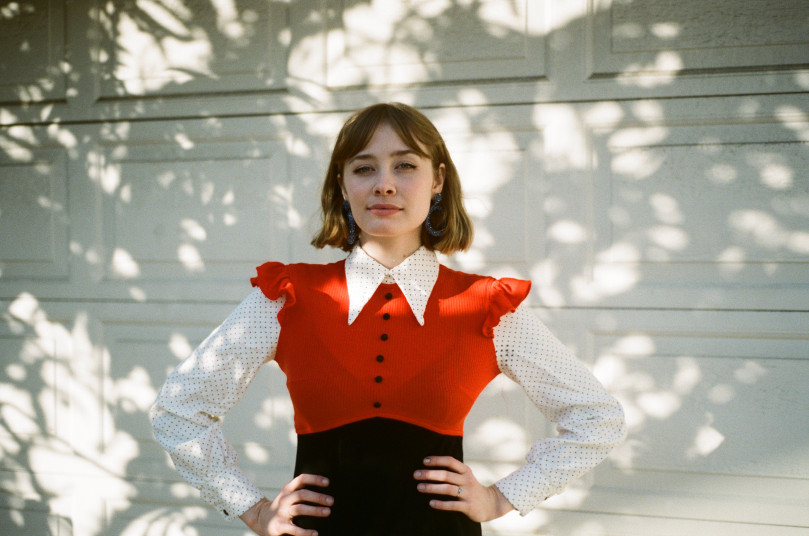
Where would you put yourself today, while you’re working on your third album?
I’m writing in a very basic sense. I’m just sitting with my guitar, that’s all, lyrics are the most important part of my third album. I feel like there is no angst in my work right now, but, on the other hand, everything seems to be melancholic, rather sad than positive. The cause is simple—I’m just writing about everything that is happening all around us. It gets hard after a year! (laughter).
see also
- An Animated Sign of the Times. The Lion from the Metro-Goldwyn-Mayer Logo is Now CGI
News
An Animated Sign of the Times. The Lion from the Metro-Goldwyn-Mayer Logo is Now CGI
- Madalina Mateciuc: Self-discovery through filmmaking
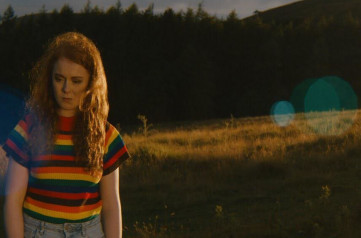 Papaya Rocks Film Festival
Papaya Rocks Film FestivalPeople
Madalina Mateciuc: Self-discovery through filmmaking
- Papaya Films-Produced Music Video to Appear at Legendary SXSW Festival in Austin, TX
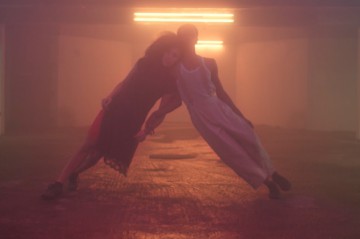
News
Papaya Films-Produced Music Video to Appear at Legendary SXSW Festival in Austin, TX
- Disney To Do a Series of Reboots. Plans Include ”Home Alone”
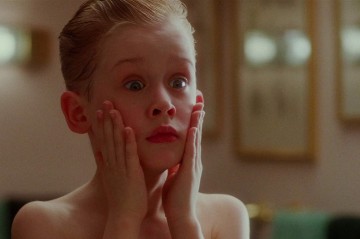
News
Disney To Do a Series of Reboots. Plans Include ”Home Alone”
discover playlists
-
Andriej Tarkowski
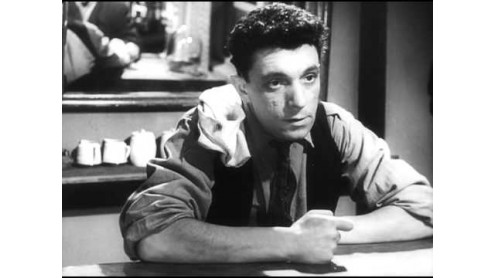 02
02Andriej Tarkowski
-
Branded Stories PYD 2020
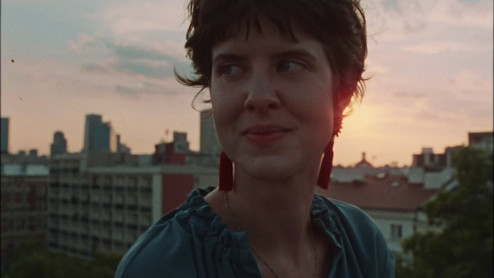 03
03Branded Stories PYD 2020
-
Papaya Films Presents Stories
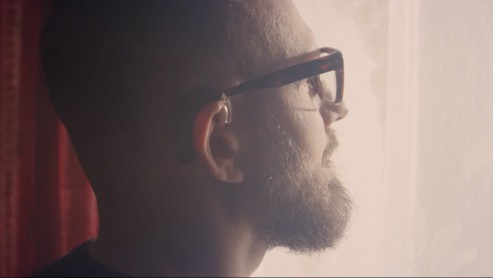 03
03Papaya Films Presents Stories
-
Original Series Season 2
 06
06Original Series Season 2
